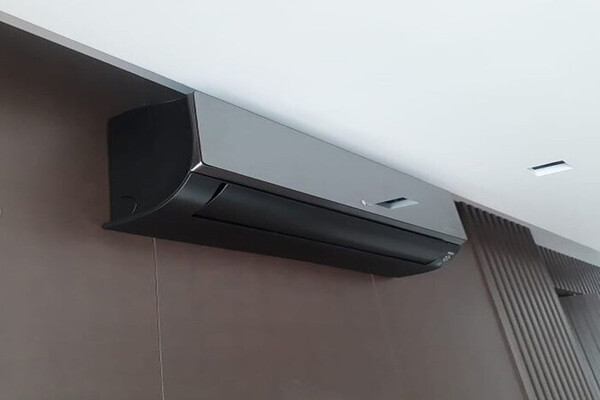New energy-saving air conditioner for a clothes store in the village of Kostogan, Jambyl region

Investor
Рrivate entrepreneur

Location
Kostogan, Kazakhstan

Investment
New energy efficient air conditioner

Energy savings
0,24 mWh per year

CO2 savings
0,089 tonnes per year

Impact
Keep comfortable indoor conditions

Donor
GEF, Federal Ministry Republic of Austria, EU

The new energy-efficient air conditioner in the clothing store impacts sales growth
A private entrepreneur from the village of Kostogan, Jambyl region, decided to purchase an air conditioner for her small clothes store, which was renovated recently. The hot weather in Jambyl region lasts for more than 8 months in the year. If there is no air conditioning in the store, the customers stay indoors for a short time, buying less goods. The entrepreneur didn’t have the required amount for the purchase of the air conditioner, since almost all savings were spent on the refurbishment of the premises.
The entrepreneur applied for a loan to the Microfinance organization (MFO) “KMF” for purchasing the air conditioner. The loan manager spoke about the Green Economy Financing Facility (GEFF) programme from the EBRD, which provides not only a loan for the purchase of an air conditioner, but also an incentive in the amount of 10% of the total cost of purchase and installation. The woman was very interested in such an opportunity. A suitable model of an air conditioner from a well-known Korean manufacturer was selected on the website of the Green Technology Selector. The air conditioner was purchased with the next day delivery. After the installation of the air conditioner in the clothes store, it became much more comfortable inside, and the customers began to visit it more often and to buy more goods.
The loan manager of the MFO “KMF” supported the entrepreneur with filling out an application and submitting documents for verification-check. After four weeks the woman received an incentive in the amount of 10% of the total costs of the purchase, including the delivery and installation of the air conditioner. The incentive is paid to a separate account. It is possible to withdraw the incentive and use in full before the loan repayment.
“I am very pleased to take advantage of this Programme. The Programme conditions are convenient, the payment is prompt, and an incentive is a great bonus! I advise everyone to join the Programme!
This project was supported by the Global Environment Facility (GEF) and the Austrian Federal Ministry of Finance.



